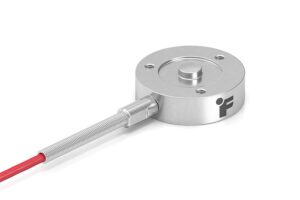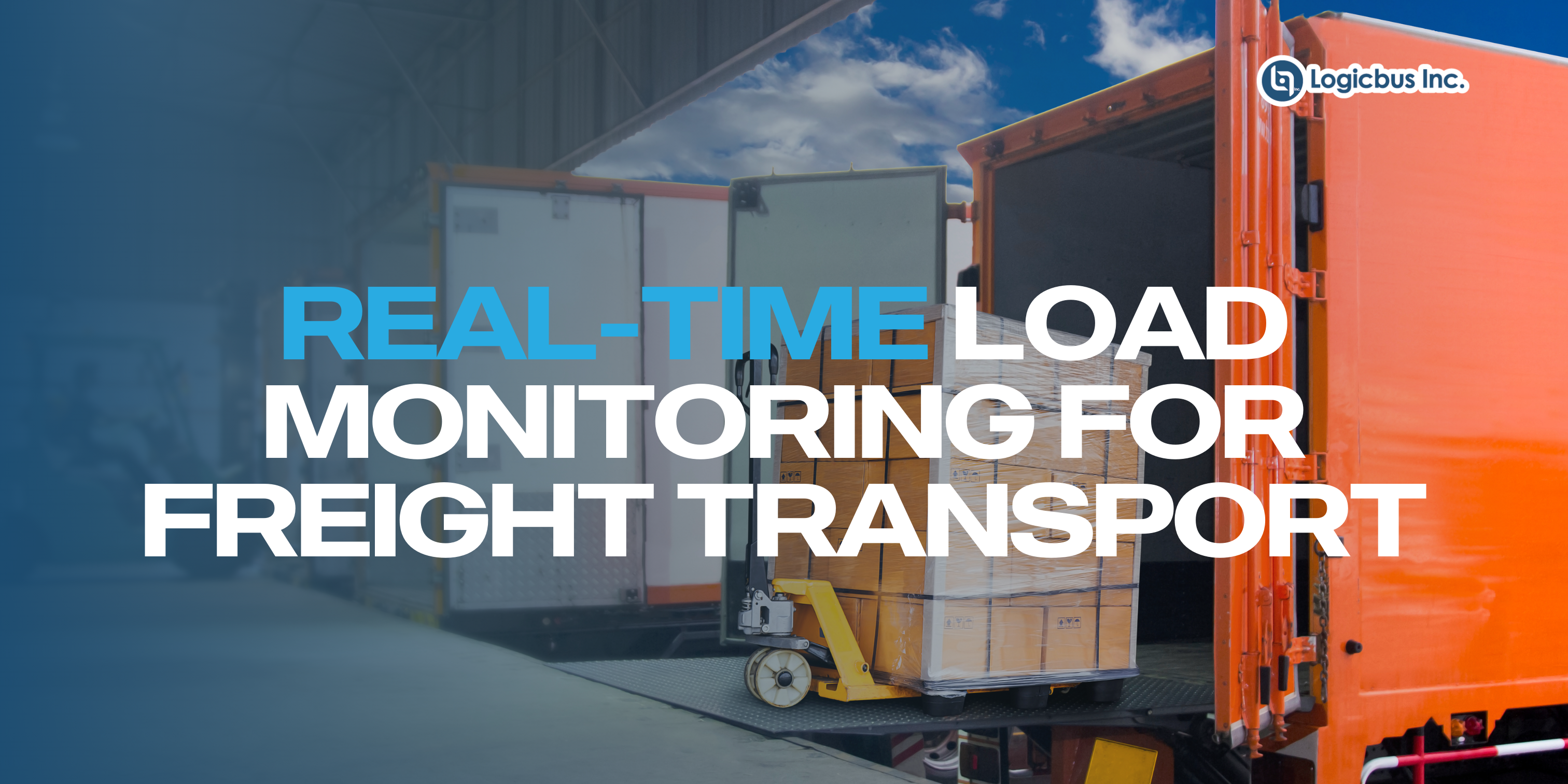How It Works
Real-Time Load Measurement with Load Cells

Load cells play a fundamental role in real-time weight monitoring. These sensors are strategically integrated into the transport vehicle’s structure to measure cargo weight before and during transit. The benefits of using load cells include:
- Instant weight readings: Providing immediate weight data to drivers and fleet operators.
- Legal compliance: Ensuring that vehicles do not exceed weight limits, preventing fines or penalties.
- Safety assurance: Preventing potential hazards caused by overloading, which can lead to mechanical failures or accidents.
By continuously monitoring weight changes, fleet operators can identify any irregularities and take preventive action, reducing risks associated with cargo mismanagement.
Data Logging & Continuous Monitoring with MadgeTech
Industrial data loggers, such as those from MadgeTech, complement load cells by capturing real-time weight fluctuations throughout the journey. These devices offer multiple advantages:
- Data storage and analysis: Logs weight changes over time, allowing for in-depth reviews of cargo stability.
- Security monitoring: Detects unexpected weight shifts that may indicate cargo movement, theft, or loss.
- Regulatory compliance: Automatically records data for audits and legal documentation.
By integrating MadgeTech data loggers into freight transport systems, fleet managers can access real-time weight reports, ensuring that cargo remains secure and properly distributed during transportation.
Smart Route Optimization Based on Load Data
Real-time weight data enables logistics managers to optimize transport routes based on fuel efficiency and safety considerations. Some key benefits include:
- Fuel consumption management: Adjusting routes based on cargo weight to minimize fuel usage.
- Load distribution balancing: Preventing excessive wear on specific vehicle components by ensuring even weight distribution.
- Efficient scheduling: Allowing for dynamic route adjustments based on real-time weight changes and road conditions.
By leveraging weight-based route optimization, logistics providers can enhance fleet performance while reducing operational costs.
Fleet Management & Automated Alerts
Industrial controllers integrate with load measurement systems to provide automated alerts and proactive fleet management. This integration allows for:
- Real-time notifications: Immediate alerts if weight limits are exceeded or if irregular weight distribution is detected.
- Automated safety adjustments: Triggers corrective actions such as speed reduction or route rerouting to maintain stability.
- Improved decision-making: Enables fleet managers to respond swiftly to weight-related challenges, ensuring smoother operations.
With automated alerts, freight companies can significantly reduce the risk of cargo-related accidents and improve overall fleet reliability.
Key Benefits of Real-Time Load Monitoring
Prevents Vehicle Overloading & Improves Safety
By continuously monitoring cargo weight, real-time load monitoring ensures that vehicles remain within safe weight limits. This reduces the likelihood of:
- Accidents caused by overloaded vehicles.
- Excessive strain on vehicle components, which can lead to breakdowns.
- Legal penalties for exceeding regulatory weight restrictions.
Optimizes Fuel Efficiency
Managing weight distribution and optimizing transport routes help reduce fuel consumption and operational costs. Benefits include:
- Lower fuel expenses due to optimized load management.
- Reduced carbon footprint, contributing to environmentally friendly operations.
- Extended vehicle lifespan by minimizing mechanical stress.
Enhances Regulatory Compliance
Automated data logging simplifies compliance with weight regulations by:
- Providing accurate weight records for audits.
- Ensuring adherence to transportation laws and industry standards.
- Reducing administrative burden with digital documentation.
Improves Cargo Security
Real-time weight monitoring detects potential cargo loss or theft by identifying unexpected fluctuations in weight. This feature helps:
- Prevent losses due to theft or mishandling.
- Maintain cargo integrity throughout transit.
- Strengthen overall supply chain security.
Increases Fleet Productivity
Smart weight tracking enhances logistics efficiency by:
- Optimizing loading and unloading processes.
- Reducing downtime caused by incorrect weight distribution.
- Improving overall fleet utilization and profitability.
Why Choose Logicbus for Real-Time Load Monitoring Solutions?
Logicbus provides advanced industrial automation solutions, including high-precision load monitoring systems designed for freight transport applications. With expertise in industrial controllers, data loggers, and IoT-based monitoring technologies, Logicbus helps logistics providers enhance safety, efficiency, and compliance through innovative solutions tailored to their needs.
By implementing real-time load monitoring, freight companies can transform their operations, ensuring secure, cost-effective, and regulation-compliant transport. Contact Logicbus today to learn more about optimizing your fleet with cutting-edge load monitoring technology.
sales@logicbus.com | support@logicbus.com | +1 619 616 7350 | Start conversation





